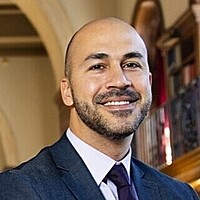Should We Cancel Debt? Insights from the Ancient World
A live event with Devin Singh, Associate Professor of Religion, Dartmouth College. Join us for Rocky Watch, a weekly series of live broadcasts with public policy experts.
Lecture Info:
Is debt a moral issue and should excessive indebtedness in society be challenged and remedied? The financial crisis of 2007-2008—not to mention our current economic crisis—have intensified concerns about growing indebtedness in the US and globally. Economic analyses about the realities of debt are often accompanied by philosophical and ethical language about the need to address such large-scale indebtedness, whether through debt cancelation or other interventions.
These ideas have been imparted to us from the ancient world in part through religious traditions that condemn excessive indebtedness and warn of the dangers of usury. Following the thread of these traditions back to the ancient Near East takes us to periods where debt instruments first appear on the scene and become a staple of human civilization.
Examining the conditions of debt’s historical emergence gives us insights into why debt remains so firmly established in our societies. It also complicates projects of liberation from the unjust economic relations that debt creates. In this presentation, Devin Singh will share from his current research into the philosophical, ethical, and religious aspects of debt, making the link to contemporary concerns about the prevalence of debt in modern societies.
Speaker Bio:
Devin Singh studies religious thought in the modern West and in sites of colonial encounter, with attention to the Christian tradition and its interaction with economy and politics. In addition to the history of Christian thought, his research engages the philosophy of religion and social ethics. Singh explores questions of religion and politics, religion and economics, secularization, sociology of markets and money, and race & coloniality in relation to religion. His first book, Divine Currency: The Theological Power of Money in the West (Stanford, 2018) examines the ways early Christian thinkers made use of monetary and economic concepts as they created Christian doctrine, and how this close relationship between theology and money has lent a sacred aura to economics as it developed in the West. Singh was guest editor for a special issue of Political Theology on "Love in a Time of Capital," and guest co-editor for a special issue of Journal of Religious Ethics on debt. Singh’s work has been supported by the Lilly Endowment and Luce Foundation, and has received national recognition by the Mellon and Whiting Fellowships, Louisville Institute, and the Forum for Theological Exploration, as well as international recognition by the Lautenschlaeger Award from the University of Heidelberg. Prior to joining the faculty at Dartmouth, Singh was a Mellon Postdoctoral Fellow in the Integrated Humanities and Lecturer in Religious Studies at Yale University, and served more recently as a visiting scholar at Harvard Divinity School's Center for the Study of World Religions. For the 2019-20 academic year, he will be a visiting scholar at Princeton University's Center for the Study of Religion.
Recent Publications:
Divine Currency: The Theological Power of Money in the West
“Covid-19 is exposing market fundamentalism’s many moral and practical flaws.” Washington Post, April 10, 2020.
